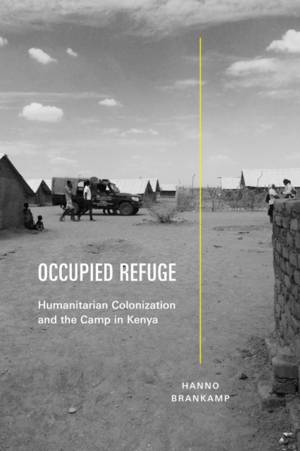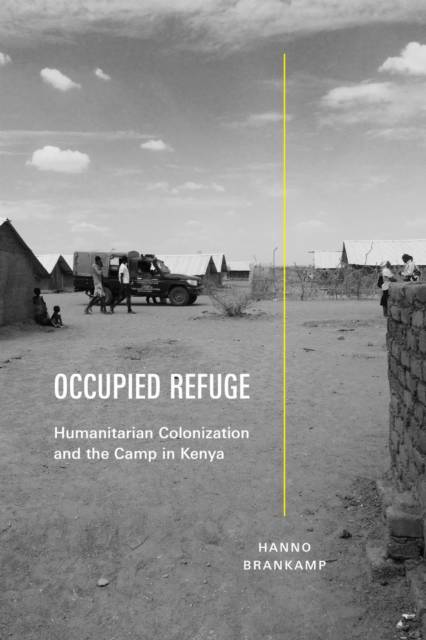
- Afhalen na 1 uur in een winkel met voorraad
- Gratis thuislevering in België vanaf € 30
- Ruim aanbod met 7 miljoen producten
- Afhalen na 1 uur in een winkel met voorraad
- Gratis thuislevering in België vanaf € 30
- Ruim aanbod met 7 miljoen producten
Zoeken
€ 160,45
+ 320 punten
Uitvoering
Omschrijving
In a world shaped by war, climate disaster, and displacement, refugee camps are imagined as indispensable safe havens for millions of people fleeing crises. In Occupied Refuge, Hanno Brankamp challenges the presumed innocence of refugee humanitarianism as a system of civilian protection that can manage global inequalities and forced migration by peaceful means. He shows that although humanitarian missions aim to protect displaced populations in the global South, they often function as militarized occupations that treat camp inhabitants as new colonized subjects. Through ethnographic research in Kenya's Kakuma refugee camp, Brankamp demonstrates how aid operations rely on a combination of infrastructural expansion, militarized policing, ethno-racial subjugation, indirect rule, and economic extraction. By co-managing these camps with international aid agencies, the Kenyan state becomes not only a willing accomplice in planetary humanitarian containment but seeks to pacify its own peripheral territories, securitize unwanted migrants, and impose national rule. Illuminating how refugee camps serve as key sites where carceral protectionism, postcolonial nation-building, and global mobility control intersect, Brankamp calls for abolitionist futures beyond the violent structures of encampment, borders, and citizenship.
Specificaties
Betrokkenen
- Auteur(s):
- Uitgeverij:
Inhoud
- Aantal bladzijden:
- 280
- Taal:
- Engels
- Reeks:
Eigenschappen
- Productcode (EAN):
- 9781478029670
- Verschijningsdatum:
- 17/02/2026
- Uitvoering:
- Hardcover
- Formaat:
- Genaaid
- Afmetingen:
- 152 mm x 229 mm
- Gewicht:
- 548 g

Alleen bij Standaard Boekhandel
+ 320 punten op je klantenkaart van Standaard Boekhandel
Beoordelingen
We publiceren alleen reviews die voldoen aan de voorwaarden voor reviews. Bekijk onze voorwaarden voor reviews.







